
At a time of great need, public health lacks ‘lobbying muscle’
If there were ever a time for more public health funding, health experts say, it's now.
DeNovix Pink CellDrop™ automated cell counter giveaway won by University of Pittsburgh
DeNovix Inc. is pleased to announce that the winner of their recent competition to receive a donation of a unique, pink CellDrop Automated Cell Counter is Beth Kahkonen, from the University of Pittsburgh, USA. Selected at random from thousands of entries from scientists worldwide, the CellDrop will be housed in the University’s Division of Pulmonary, Allergy, and Critical Care Medicine.
Antisense Therapeutics: Poster presentation on the Muscular Dystrophy Association Virtual Conference 2020 website
Antisense Therapeutics, an Australian biopharmaceutical company developing and commercializing antisense pharmaceuticals for unmet need in rare diseases announces a virtual poster presentation on the Muscular Dystrophy Association Virtual 2020 Conference website.
American Thoracic Society calls for moratorium on tear gas use during COVID-19 pandemic
The American Thoracic Society calls for a moratorium on the use of tear gas and other chemical agents deployed by law enforcement against protestors participating in demonstrations, including current campaigns sparked by the death of George Floyd.
Clear COVID-19 testing strategy needed before re-opening the U.S. economy, says GlobalData
Contact tracing is a tried and true strategy for reducing the severity of the COVID-19 pandemic, as demonstrated in many countries such as South Korea and Taiwan.
Study shows 1 in 15 parents is hesitant about routine childhood vaccines
A national study measuring parental attitudes toward vaccinations found 6.1% were hesitant about routine childhood immunizations while nearly 26% were hesitant about the influenza vaccine.
New nonsurgical treatment reduces pain, improves function in patients with "frozen shoulder"
A new nonsurgical treatment decreases errant blood flow in the shoulder to quickly reduce pain and improve function in patients with adhesive capsulitis, also known as "frozen shoulder,"
Hologram technology may help doctors deliver targeted liver cancer treatments
Data from one of the first clinical uses of augmented reality guidance with electromagnetically tracked tools shows that the technology may help doctors quickly, safely, and accurately deliver targeted liver cancer treatments, according to a research abstract presented during a virtual session of the Society of Interventional Radiology's 2020 Annual Scientific Meeting on June 14.
Experts recommend tweezers to protect children from ticks
Not all bloodsuckers are created equal in parents' eyes. When it comes to bug bites, parents are twice as likely to be concerned about ticks as they are about mosquitoes transmitting disease, a new national poll finds.
House-call model in rural Indiana helps reduce emergency department use, hospital readmissions
Interventional radiologists participating in a collaborative house call model in rural Indiana helped reduce emergency department use by 77 percent and hospital readmissions by 50 percent for nearly 1,000 elderly homebound patients with chronic illnesses, according to a research abstract presented during a virtual session of the Society of Interventional Radiology's 2020 Annual Scientific Meeting on June 13.
New treatment may improve the quality of life for patients with mesothelioma
A novel treatment for advanced mesothelioma is safe and effective and may improve the quality of life for patients who have few treatment options, according to a research abstract presented during a virtual session of the Society of Interventional Radiology's 2020 Annual Scientific Meeting on June 14.
White House left states on their own to buy ventilators. Inside their mad scramble.
Fearful that New Orleans would run out of ventilators by early April as the number of COVID-19 patients rose by the hundreds, even thousands, per day, Louisiana officials set out to get every device they could find. At the time, that meant securing an additional 14,000.
Chimeric reference standards for validating controls in SARS-CoV-2 tests
A preliminary study by researchers from the Garvan Institute of Medical Research and the University of New South Wales and published on the preprint server bioRxiv in June 2020 reports the use of chimeric design to produced reference standards for diagnostic tests. This could allow a highly flexible approach to the development of different genetic features in the same test, even for organisms that are not directly related.
Earlier treatment of maternal depression can improve outcomes for the child
The children of mothers with long-term depression have been found to be at higher risk of behavioural problems and poor development.
New MRI techniques can improve outcomes in patients with Parkinson's disease
Recently developed MRI techniques used to more precisely target a small area in the brain linked to Parkinson's disease and essential tremor may lead to better outcomes without surgery and with less risk of negative effects, a new study led by UT Southwestern researchers suggests.
Tuberculosis and polio vaccines may offer temporary protection against SARS-CoV-2
As the world grapples with the coronavirus disease (COVID-19) pandemic, scientists race to develop an effective vaccine to protect against the deadly SARS-CoV-2 virus. While potential vaccines are still being developed and tested, researchers propose that existing vaccines could give the immune system a temporary boost to ward off infection.
Glycans "lock and load" the SARS-CoV-2 spike protein for infection
A new study by scientists from the University of California San Diego, USA and Maynooth University, Ireland and published on the preprint server bioRxiv* in June 2020 reports preliminary results showing that the spike protein of the SARS-CoV-2, as well as its glycan coat, has “hitherto unseen functional and structural” properties. These may be useful in designing novel therapeutics to target this molecule.
Hydroxychloroquine ineffective in animal SARS-CoV-2 infection
A new study by scientists from the U.S and U.K. and published on the preprint server bioRxiv in June 2020 reports that there is no evidence of efficacy for the drug hydroxychloroquine (HCQ) against infection with SARS-CoV-2 in hamsters or macaque models. This finding does not support the current widespread prophylactic and therapeutic use of HCQ in COVID-19.
Steroidal drugs subvert SARS-CoV-2 interaction with ACE2 receptors
A new study by Italian researchers and published online on the preprint server bioRxiv* in June 2020 reports the ability of several existing steroidal drugs to reduce the binding of the SARS-CoV-2 to the ACE2 receptor. This could help define newer strategies using viral entry blockers to reduce viral load.
Remdesivir prevents replication of SARS-CoV-2 in human intestinal organoids
A new German study published on the preprint server bioRxiv* in June 2020 shows that the drug remdesivir can reduce the replication of SARS-CoV-2 in human intestinal organoids.
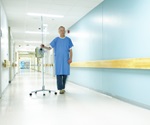
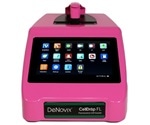


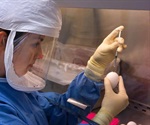

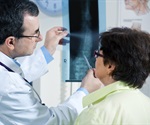
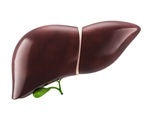

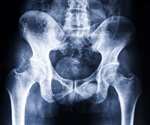
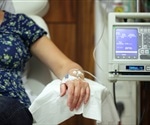

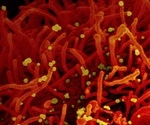



_53aeb02bbd5b4cacafce3fa4fcb6b29e-150x125.jpg)
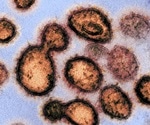
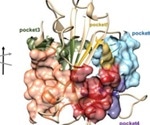
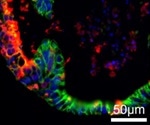
































No hay comentarios:
Publicar un comentario